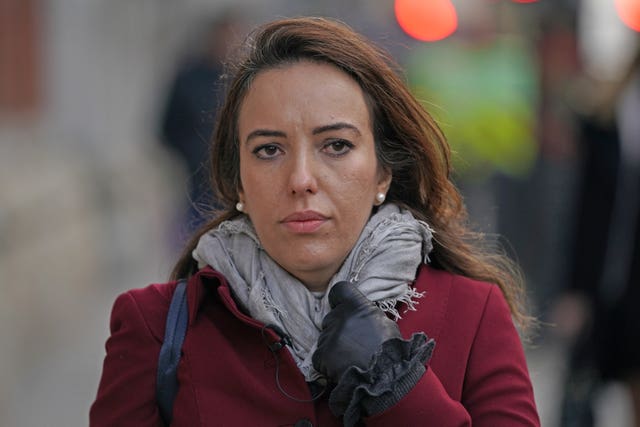
Julian Assange has had a stroke in prison due to the “constant chess game” over his future, his fiancee has claimed.
The Wikileaks founder, 50, is said to have suffered a stroke at the time of a High Court battle over whether or not he should be extradited to the US.
He is being held at HMP Belmarsh, a high-security men’s prison in south-east London.
Stella Moris, 38, who is the mother of his two children, tweeted: “Julian Assange suffered a stroke on the first day of the High Court appeal hearing on October 27th. He needs to be freed. Now.”

In an interview with the Mail On Sunday, she said: “Julian is struggling and I fear this mini-stroke could be the precursor to a more major attack. It compounds our fears about his ability to survive, the longer this long legal battle goes on.
“It urgently needs to be resolved. Look at animals trapped in cages in a zoo. It cuts their life short. That’s what’s happening to Julian. The never-ending court cases are extremely stressful mentally.”
She added: “I believe this constant chess game, battle after battle, the extreme stress, is what caused Julian’s stroke on October 27… he was in a truly terrible state. His eyes were out of sync, his right eyelid would not close, his memory was blurry.”
Assange is wanted in America over an alleged conspiracy to obtain and disclose national defence information following WikiLeaks’ publication of hundreds of thousands of leaked documents relating to the Afghanistan and Iraq wars.
US authorities brought a High Court challenge against a January ruling by then-district judge Vanessa Baraitser that Assange should not be sent to the US, in which she cited a real and “oppressive” risk of suicide.
After a two-day hearing in October, the Lord Chief Justice Lord Burnett, sitting with Lord Justice Holroyde, ruled in favour of the US on Friday.
BREAKING: Julian #Assange suffered a stroke on the first day of the High Court appeal hearing on October 27th.
He needs to be freed. Now. #FreeAssange https://t.co/yNg8HGUoAD
— Stella Moris #FreeAssangeNOW (@StellaMoris1) December 11, 2021
The senior judges found that the judge had based her decision on the risk of Assange being held in highly restrictive prison conditions if extradited.
However, the US authorities later gave assurances that Assange would not face those strictest measures either pre-trial or post-conviction unless he committed an act in the future that required them.
Ms Moris said on Friday that his lawyers intend to take his case to the Supreme Court, the UK’s highest court.
Justices will, however, have to decide first whether to hear the case before any appeal is heard.
A spokesman for the Ministry of Justice told the PA news agency it would not comment on individual cases.


Why are you making commenting on The National only available to subscribers?
We know there are thousands of National readers who want to debate, argue and go back and forth in the comments section of our stories. We’ve got the most informed readers in Scotland, asking each other the big questions about the future of our country.
Unfortunately, though, these important debates are being spoiled by a vocal minority of trolls who aren’t really interested in the issues, try to derail the conversations, register under fake names, and post vile abuse.
So that’s why we’ve decided to make the ability to comment only available to our paying subscribers. That way, all the trolls who post abuse on our website will have to pay if they want to join the debate – and risk a permanent ban from the account that they subscribe with.
The conversation will go back to what it should be about – people who care passionately about the issues, but disagree constructively on what we should do about them. Let’s get that debate started!
Callum Baird, Editor of The National
Comments: Our rules
We want our comments to be a lively and valuable part of our community - a place where readers can debate and engage with the most important local issues. The ability to comment on our stories is a privilege, not a right, however, and that privilege may be withdrawn if it is abused or misused.
Please report any comments that break our rules.
Read the rules hereLast Updated:
Report this comment Cancel